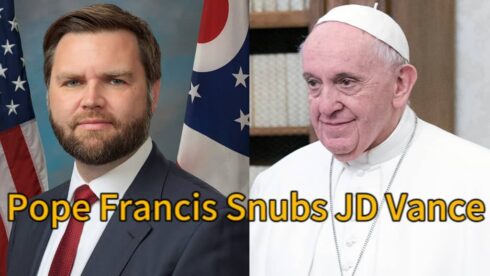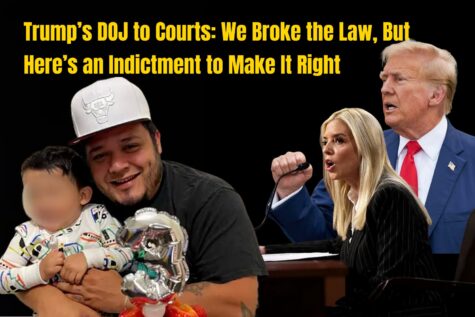Pope Francis deliberately opted out of a scheduled Vatican meeting with U.S. Vice President JD Vance on Saturday, triggering a wave of speculation within global diplomatic circles. In what Vatican officials described as a “careful pastoral decision,” the pontiff assigned a senior cardinal to represent him, signaling a subtle but significant divergence in ideological values.
This rare deviation from papal protocol was seen as a direct rebuke of Vance’s hardline political stances, particularly on immigration and social justice. Pope Francis, known for his outspoken support of the marginalized and his emphasis on mercy over political partisanship, reportedly remained in his private residence during the visit, sending a message that actions — or in this case, inaction — carry immense symbolic weight.
Vatican Issues Statement Highlighting Compassion Over Politics
Pope Francis began the day with a message released through the Vatican Press Office, emphasizing the Church’s unwavering commitment to “radical compassion in a fractured world.” The statement was laced with subtle criticism, noting the need for political leaders to “listen more intently to the voices of the oppressed rather than echo the rhetoric of division.”
The Pope’s words were interpreted as a veiled critique of Vance’s conservative agenda, especially regarding immigration policies that the Church has long opposed. Vatican insiders noted that the homily during morning Mass focused heavily on the biblical mandate to “welcome the stranger,” drawing an unmissable parallel to contemporary political debates in the U.S.
Cardinal Pietro Parolin Delivers Stern Yet Hopeful Message
In lieu of the Pope, Secretary of State Cardinal Pietro Parolin welcomed JD Vance to the Apostolic Palace, offering a cordial but firm address rooted in Catholic doctrine. The cardinal reminded the vice president of the Church’s teachings on human dignity, climate responsibility, and economic equity — topics where the Vatican and the current U.S. administration diverge.
Parolin’s tone, according to sources present, oscillated between diplomatic reserve and prophetic clarity. He reiterated the Pope’s vision of “a politics rooted not in fear, but in fraternity,” emphasizing the Church’s role as a moral compass in turbulent geopolitical times.
Global Reaction: Applause and Alarm from Both Camps
Pope Francis’ decision sparked polarized reactions worldwide, with progressive Catholics applauding the move as a bold assertion of moral authority. The editorial board of La Civiltà Cattolica praised the Pope’s “pastoral courage,” suggesting that spiritual leadership must not cower before political expediency.
Conversely, conservative commentators lambasted the decision as an affront to U.S.-Vatican relations. Right-leaning media outlets accused the Holy See of abandoning its role as a neutral spiritual interlocutor. Some U.S. senators close to Vance described the snub as “unprovoked and counterproductive,” hinting at future diplomatic frostiness.
Theological Implications: A Renewed Vision of Papal Leadership
Pope Francis’ gesture has reignited discussion about the evolving role of the papacy in international affairs. By choosing silence over ceremony, the pontiff has arguably elevated his moral standing among reform-minded Catholics who believe the Church must engage politics prophetically rather than politely.
This episode echoes earlier moments in Francis’ tenure, such as his rebuke of populist leaders and climate change denial. Vatican theologians argue this is a new model of engagement — not rooted in confrontation, but in selective presence and unmistakable ethical signals. In Francis’ words, “sometimes absence can speak louder than applause.”
What This Means for Future U.S.-Vatican Relations
Pope Francis’ sidestepping of Vice President JD Vance may foreshadow a recalibrated Vatican approach to American politics. Analysts believe the Holy See is signaling that values — not just statecraft — will define future interactions with U.S. leadership, especially as the global Church grapples with nationalism and populism.
While the Vatican assured that bilateral ties remain intact, the underlying message was clear: the moral integrity of the Church cannot be diluted for diplomatic convenience. Pope Francis, as the voice of over a billion Catholics, is once again staking a position that marries tradition with urgent relevance — one sermon, or silence, at a time.














